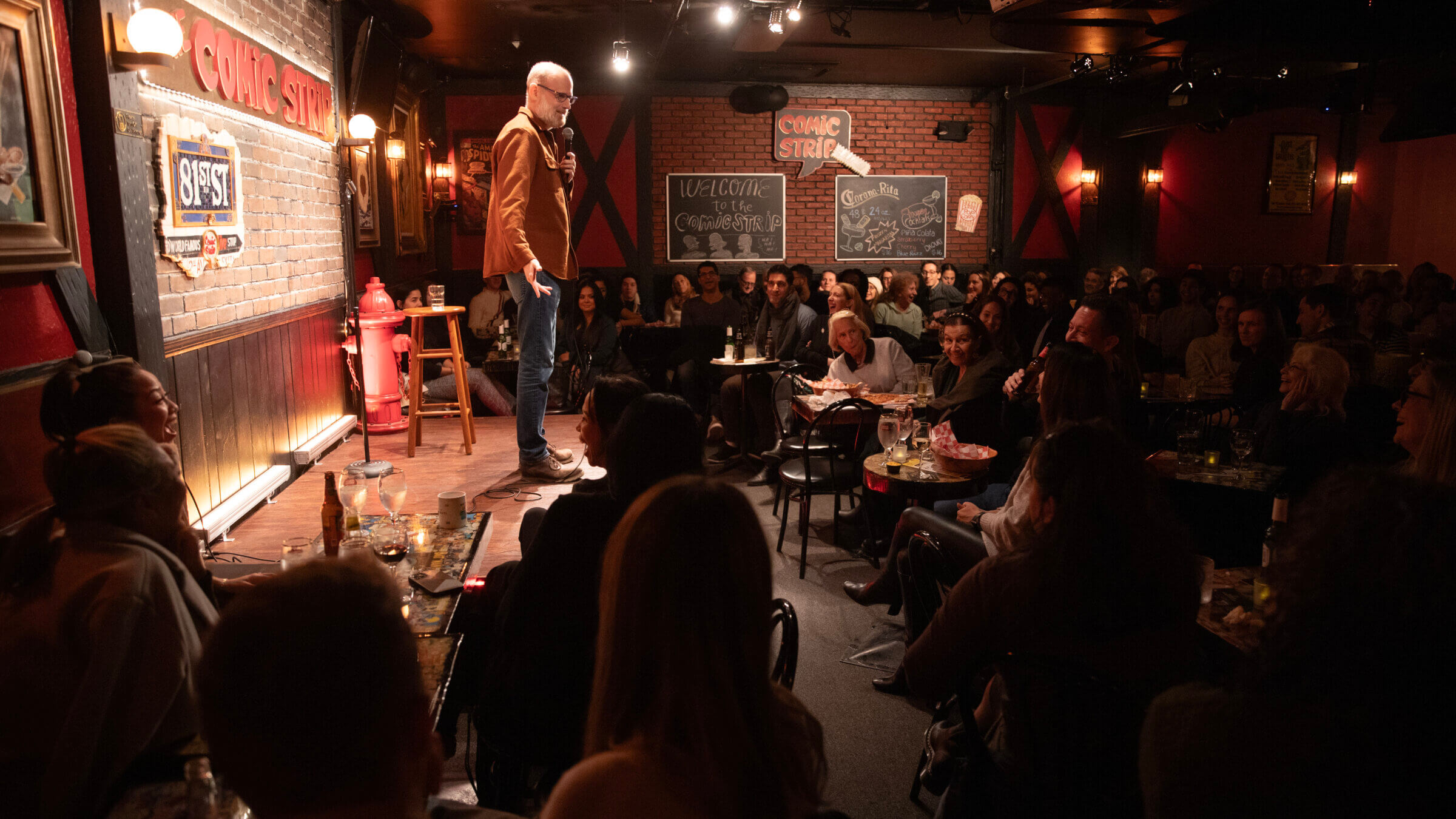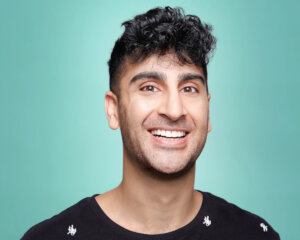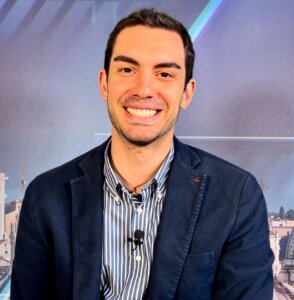Jewish and Muslim comedians team up to bring comedy amid the conflict
Erik Angel’s Comedy for Peace tour stops in Maryland this weekend, with more dates being added for 2024

Erik Angel in a stand-up comedy show in New York. Courtesy of JT Anderson
On the morning of Oct. 7, Israeli stand-up comedian Erik Angel knew he would have to cancel his show scheduled for that Saturday night in New York. He had spent the day before celebrating his wedding anniversary with his wife, and before heading to bed late at night, notifications came flooding into his phone of what was happening in Israel. He slept only two hours that night, “overwhelmed by panic attacks,” he said, and getting on stage for his comedy show would have been emotionally impossible.
On Oct. 8, Angel went back on stage for a brief 12-minute set. Once he got off the stage, he burst into tears. Day after day, as news of his acquaintances and friends who were kidnapped or killed in Hamas terrorist attacks in Israel continued to circulate on social media, he decided to continue with his shows. “I realized again how the tool of comedies — and I mean comedies, not jokes, it’s much more than that — is really about being together. It’s about release and relief. It’s about sharing,” he said.
Angel was familiar with this concept of sharing. In 2019, he launched Comedy for Peace, a series of stand-up comedy events where Jewish, Muslim and Christian comics took turns on stage in the same show. Since its inception, Comedy for Peace has performed in front of audiences on college campuses, Jewish community centers and standard comedy venues across North America, with recent expansions into virtual performances over Zoom. These shows have not only entertained but also served a philanthropic purpose, raising thousands of dollars for various organizations, including nurses in New York and refugees from Ukraine.
“I grew up in Israel, a place with 2 million Muslim people that I really never met there,” Angel said. “I never had a Muslim kid in my classes or on my basketball team. I basically started to meet Muslims when I traveled around the world, and the meetings were always very friendly. ‘Why can’t it be like that all the time?’ I asked myself. When I became part of the comedy scene here in New York I decided to ask the Muslim comedians if they were interested in doing something together,” Angel said. “I was very surprised to see that more than 250 people showed up to our first show in March 2019.”
Gibran Saleem, a Pakistani-American stand-up comedian living in Brooklyn who describes himself as “an extremely liberal progressive Muslim,” will take part in a Comedy for Peace show with Angel and two other Jewish and Muslim comedians this Sunday, Feb. 11, in Silver Spring, Maryland, as part of the Sprung Comedy Festival. “What made me more tuned and reinforced in this experience is that every human being is a human being,” Saleem said in a Zoom interview. “We are all struggling and dealing with our own internal and external conflict and tragedy. No matter who you are, as a human being you’re processing devastating things.”

“I found so much peace with some of these shows that, you know, we are bringing people together, and people need an outlet to not focus on tragedy, and this helps. This helps healing through humor.”
The interfaith comedy show will make two more stops, on Feb. 16 at the University of Colorado Boulder and Feb. 29 at the Jewish Community Center of Central New Jersey, but other events will be held through 2024. At the end of each show there will be a Q&A session, where the comedians will answer questions from the audience regarding their personal lives and how they are coping with the events unfolding in Israel and Gaza.






















